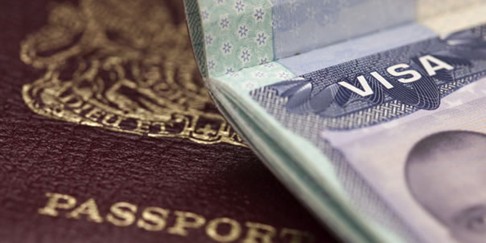Immigration Law
We understand that having immigration issues can be extremely stressful. The UK immigration rules are constantly changing and can sometimes be complex and confusing. There can also be short time limits which are very strict and we will endeavour to handle with your case as quickly and efficiently as possible.
In all immigration matters, we offer a ‘document check’ service for a fee should you wish for us to only check your already completed documents to ensure that they have been correctly completed before they are submitted
We can help with all forms of immigration, refugee and asylum issues such as:
- Spouse Visas
- Fiancé Visas
- Domestic Workers
- Discretionary Leave
- Long Residence Applications
- Naturalisation
- Registration
- EEA Applications
- Indefinite Leave to Remain/Settlement
- Human Rights Applications
- Detention Advice
- Students
- UK Ancestry
- Entry Clearance
- Unmarried Partners
- Family and Defendants
- Visitors
- Further Leave to Remain
- Appeals before the Asylum and Immigration Tribunal
- Worker Registration Scheme
- Points Based System
- Sponsorship Licenses
- Tier 1 (Highly Skilled Workers, Entrepreneurs, Investors, Exceptional Talent and Post Study Workers)
- Tier 2 (Work Permits/Certificates of Sponsorship, Sponsored Skilled Workers)
- Tier 4 (Students)
- Tier 5 (Temporary Workers) The Youth Mobility Scheme replaces the previous Working Holidaymaker Visa
Please note that the list is not exhaustive.
We have provided some information below on some of the most common areas of immigration law however please note that this area of law is always changing.
UK Marriage / Spouse Visa
A UK Marriage Visa or a Spouse visa allows foreign nationals who are married (or in a civil partnership) to a British citizen, or a person who has settlement status in the UK to enter or remain in the UK. If you are based outside of the UK you will need to apply for Entry Clearance in order to join your spouse/civil partner in the UK. The visa will be granted for two years after which time you can apply for further leave to remain, Indefinite Leave to Remain and Naturalisation as a British Citizen.
The Home Office has introduced stringent criteria which you will need to meet for your visa application to be successful. There is a considerable amount of documentary evidence which you will be required to show as evidence of the fact that you are in a genuine relationship and that you meet the financial requirements.
A large proportion of applications are refused due to insufficient evidence being provided by applicants.
We can assist you with all aspects of your application for a Spouse/Marriage visa. We will prepare your application and ensure that you meet with all the requirements of the relevant Immigration Rules. We will ensure that all key points are substantiated with documentary evidence thereby leading to a successful application and avoiding the unnecessary expense of re submitting your application to the Home Office.
What happens once you are in the UK on a UK Marriage or Spouse Visa?
UK Marriage Visas are granted for an initial five year period following which you can apply for Indefinite Leave to Remain in the UK (ILR) and British nationality. With a UK Marriage Visa you may bring your dependents (for example your children) with you to the UK. You must, however be able to financially support them for their entire stay. You will be able to take up employment in the UK as soon as the document is granted without the need to arrange a UK Work Permit. With a UK Marriage Visa there are no restrictions upon the type of work that can be undertaken.

Naturalisation
Once you have completed five years of lawful residence in the UK and you have held Indefinite Leave to Remain (ILR) for at least one year, you can apply for Naturalisation as a British Citizen. If you are married to a British Citizen, you can apply for Naturalisation as soon as you have completed three years residence in the UK and you have ILR. If successful, it will mean you will no longer be subject to immigration control and you would be free to live and work not only in the UK but anywhere in the EEA. We can help with your Naturalisation application and queries.
Applying for Naturalisation
In order to make an application to Naturalise as a British citizen you must have had Indefinite Leave to Remain for at least 12 months. The only exception is EEA citizens and their family members. Upon five years continuous residence in the UK ending on or after 30 April 2006, EEA citizens who have continuously exercised ‘treaty rights’ (as a worker, self-employed person, student, self-sufficient person or a jobseeker) and their family members automatically acquire permanent residence status.
Once EEA citizens and their family members have had permanent residence status for a period of at least 12 months they are then entitled to apply to Naturalise as a British citizen.
Qualifying Criteria for British Citizenship
- There are a number of requirements that one has to fulfill in order to make a successful application for British citizenship:
- Minimum age of 18;
- Sound mind;
- Intention of having your home in the UK;
- Sufficient knowledge of English Language;
- Sufficient knowledge of life in the UK;
- Good character;
- Residence requirements; and
EEA Family & Residence Permits
An EEA Family permit is for nationals of countries outside the EEA who are family members of EEA nationals who wish to come to the UK.
Although the UK is a member of the EEA, a non-EEA family member of a British citizen should not generally come to the UK using an EEA family permit. However, a non-EEA family member of a British citizen living abroad can apply for an EEA family permit to join the British citizen on their return to the UK. We can help with your EEA nt of any claim.
Rose Samuel Odele RSO Solicitors is an established law firm, located at 252 Kirkdale, Sydenham, London, SE26 4NL.
Opening hours are Monday to Friday from 9.30 am until 5.30 pm. The office is accessible on the landline: 02086763449, through email: info@rsosolicitors.com, or website: www.rsosolicitors.com. Each caseworker/solicitor is also available for clients on their individual mobile phones in cases of a legal emergency.
contact us Today. Satisfaction Guaranteed
RSO Solicitors is authorised by the Solicitors Regulation Authority
and contracted with the Legal Aid Agency
